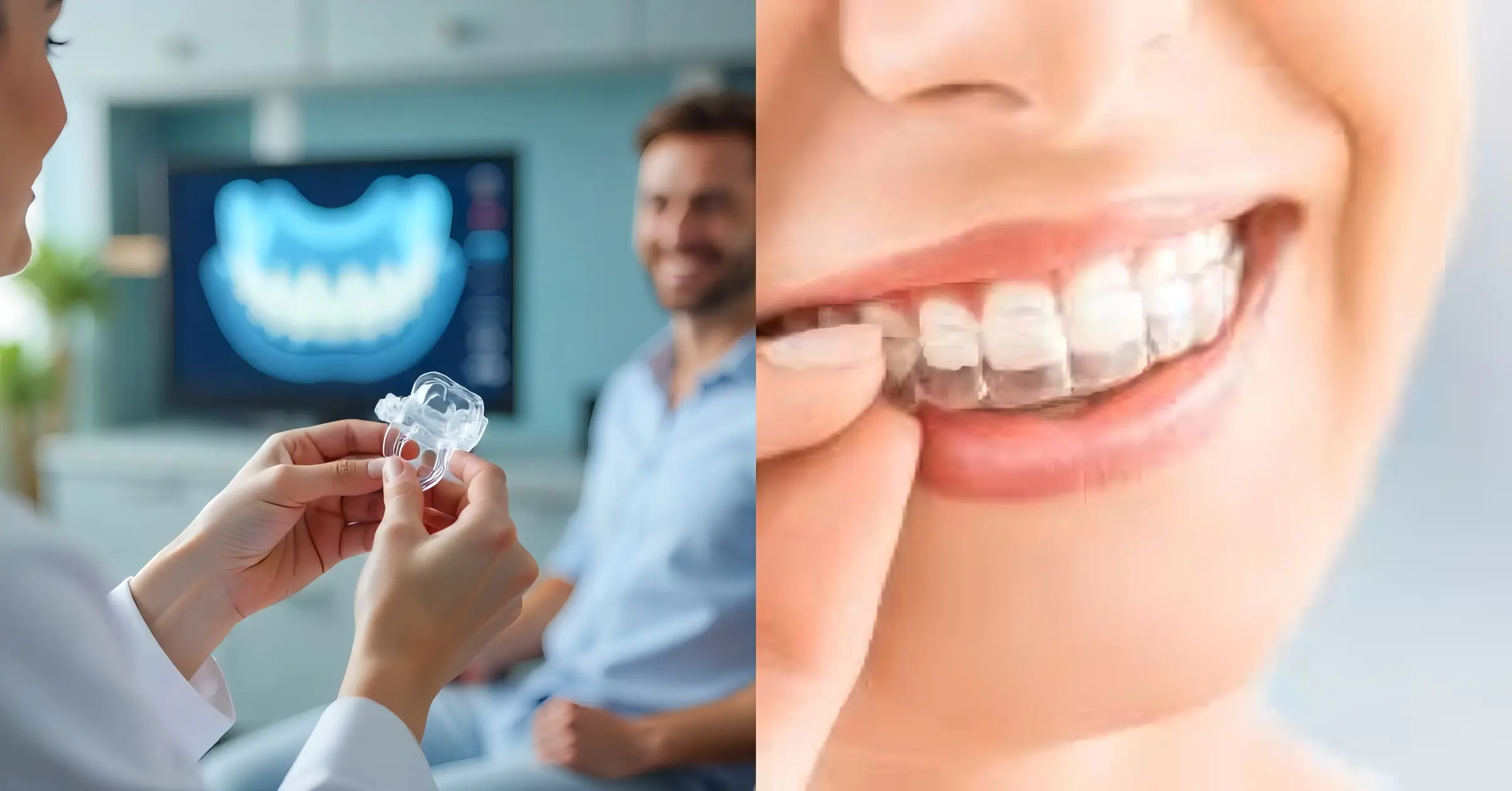If you’re thinking about straightening your teeth but aren’t sure whether Invisalign is right for you, you’re not alone. Many adults, teens, and even parents researching for their kids ask the same thing: “Will Invisalign work for me?”
The truth is, Invisalign can deliver amazing results — but it’s not a one-size-fits-all solution. The treatment’s success depends on the problem being treated, your lifestyle, and your willingness to follow the plan. Let’s break down everything you need to know so you can make a confident decision.
Quick Answer
Yes Invisalign works for most common dental alignment issues like crowding, gaps, overbites, and crossbites. However, its effectiveness depends on the severity of your case, your age, and how consistently you wear the aligners as directed by your orthodontist.
EXPLORE MORE
How Does Invisalign Actually Work?

Invisalign uses a series of clear, removable aligners that gradually shift your teeth into place. Each aligner is custom-made from 3D scans of your mouth. You’ll typically switch to a new set every one to two weeks.
Unlike metal braces, Invisalign trays are nearly invisible and removable, making them a popular choice for people who value both appearance and convenience.
Common Dental Issues Invisalign Can Fix
| Dental Issue | Will Invisalign Work? | Notes |
|---|---|---|
| Crowded teeth | Yes | Works well for mild to moderate cases. Severe crowding may need braces. |
| Gaps between teeth | Yes | Often corrected faster than braces. |
| Overbite | Yes | Effective in most cases, but severe overbites may need extra appliances. |
| Crossbite | Yes, in many cases | Complex cases may require hybrid treatment. |
| Severe misalignment | Not always | Traditional braces may be more effective. |
Invisalign vs Braces: Effectiveness Breakdown

Invisalign Effectiveness:
- Best for mild to moderate alignment issues
- Discreet and removable
- Requires self-discipline to wear 20–22 hours a day
Braces Effectiveness:
- Work for all types of dental problems, including severe misalignment
- Not removable, so compliance isn’t an issue
- More visible but sometimes faster for complex corrections
Bottom line: Invisalign is just as effective as braces for many cases — but braces may be the better choice if you have severe dental challenges.
Invisalign Treatment Results: What to Expect
Most patients start seeing noticeable improvements within a few months. The full treatment time usually ranges from 6 to 18 months, depending on the complexity of your case.
Orthodontists often show before-and-after pictures of Invisalign patients so you can see real-world results. Studies published in the American Journal of Orthodontics confirm that Invisalign is highly effective for mild and moderate cases when patients stick to the plan.
Real-World Limitations of Invisalign
Even though Invisalign has a high success rate, it does have limitations:
- Severe bite issues may need braces or surgery.
- If you forget to wear your aligners, results will be delayed.
- Some cases may require small attachments bonded to teeth for better control.
EXPERT ANSWERS
Will Invisalign work for my teeth?
If your misalignment is mild to moderate, the answer is usually yes. The best way to know is to schedule a consultation with an orthodontist who specializes in Invisalign treatment.
Does Invisalign work for crowded teeth?
Yes, Invisalign works well for mild to moderate crowding. For severe cases, your orthodontist might recommend braces or tooth extraction before aligners.
Can Invisalign fix an overbite?
Invisalign can fix most overbites. However, severe overbites may require additional orthodontic tools.
Will Invisalign work if I have gaps?
Yes. Invisalign is highly effective at closing gaps between teeth, sometimes faster than braces.
Is Invisalign effective for teenagers?
Yes, Invisalign Teen is designed specifically for adolescents and includes compliance indicators to track wear time.
Final Thoughts
So, will Invisalign work? For most people with common alignment issues, the answer is yes. It’s effective, discreet, and far more comfortable than metal braces. But remember — the key to success is following your orthodontist’s instructions and wearing your aligners as directed.
If you’re still unsure, book a consultation with a certified orthodontist. They’ll give you a personalized assessment and let you know if Invisalign is the right path for your smile.
FAQ’s
Q1: How well does Invisalign work compared to braces?
For mild to moderate cases, Invisalign is just as effective as braces. For severe cases, braces may be more reliable.
Q2: Will Invisalign work faster than braces?
Not always. Invisalign is usually faster for spacing and mild crowding, while braces can be quicker for complex corrections.
Q3: Can Invisalign fix crossbite?
Yes, but only if the case isn’t too severe. Sometimes orthodontists combine Invisalign with other treatments.
Q4: Will Invisalign work if I’ve had braces before?
Absolutely. Many adults use Invisalign to correct minor shifting after previous orthodontic treatment.
Q5: Is Invisalign worth it for adults?
Yes — especially if you want a discreet, removable option. Most adult patients report high satisfaction with Invisalign.
Expert Sources and Citations
- American Association of Orthodontists (aaoinfo.org) – Clinical guidelines on Invisalign effectiveness
- American Journal of Orthodontics and Dentofacial Orthopedics – Research on aligner success rates
- Mayo Clinic – Information on orthodontic treatment and aligner use
- Official Invisalign website: https://www.invisalign.com
Author Bio
Written by Daniel Brooks, a professional health and wellness content writer with over 7 years of experience in medical and dental topics. With a background in communications and digital marketing, he focuses on creating expert-driven, easy-to-understand articles that help readers make confident healthcare decisions.












